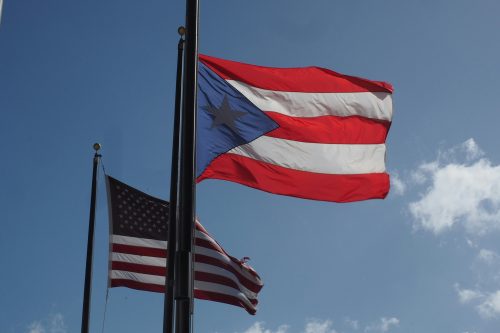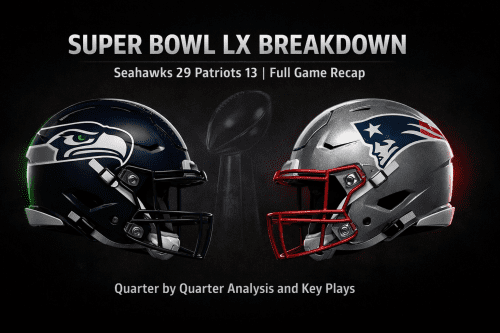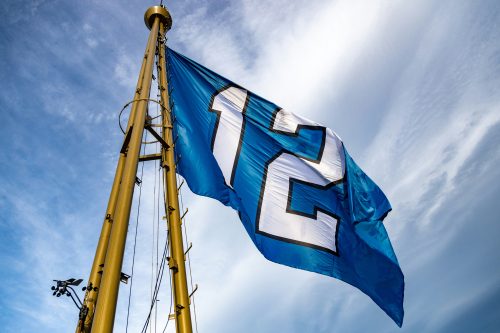The ‘Stadium Rapper’ is the all elusive pinnacle of hip-hop popularity. Reserved only for the top 1% of rap music, this title is for those artists that are able to cater to lovers of the art and the general public alike.
You know. Drake, J. Cole, and Kendrick.
Not many other ‘current’ rappers are able to pack out a stadium for their tour. The average rapper that reaches this elite status usually only holds it for so long. Jay-Z is the longest running stadium rapper in the game. In fact, alongside Ja Rule and the Ruff Ryders, he was the first artist to ever hit the stadium circuit we now know.
Back in 1999, the format for major rap tours included R&B support to fully grasp the general population. Jay-Z’s Hard Knock Life Tour broke that mold when he nixed R&B support in favor of joining forces with DMX and an up and coming Ja Rule. Since then, we’ve seen the top artists in the game follow suit and cash in while the demand is hot. But like most flames, they burnout.
50 Cent and G-Unit once held the title and in some cities, they could now most likely only fill a couple thousand seats. It happens, Jordan didn’t put the numbers up for the Wizards, but he still played valiantly. Every run has its end.
Jay-Z has carefully constructed his strategy for the last few decades to sell millions of records and pack stadiums. We honestly don’t know how he’s been able to hold the crown or at least always be in the conversation, but he’s been there. Spacing out releases and tours to ensure demand is there, he’s well aware that what is hot now is what’s hot, but a legend can come back every so often and remind the peasants who is really king. That is, until he is no longer king himself.
Out of Jay-Z’s last three world tours in the past seven years, he has only rocked one as a solo artist. 2011’s Watch The Throne Tour saw massive success as it saw a smoldering hot Kayne West team up with his mentor and big brother to turn the world out. This was followed up a few years later with the Magna Carter world tour in 2013 which needed extra dates added due to demand. Shortly after the success of this tour, Jay embarked on the On The Run alongside his wife Beyonce. This was a momentous occasion as we saw hip-hop’s royal family come together for one of the largest hip-hop tours ever witnessed. At the peak of popularity, the two doubled down on less shows and larger venues. Extra dates needed to be added to this tour as well.
Flash forward to 2017.
Jay’s 4:44 album has received as much critical praise as it has received criticism for how it was released. Being a Tidal platform or Sprint customer exclusive release, many people were upset about the scarcity of ways to obtain the music. Although Mr. Carter crafted the release to go platinum the moment it dropped via Sprint, the general public didn’t have many positive things to say. Platform-specific drops are great leverage for artists but truly pigeonhole the audience that is able to enjoy the music. This was a great win for Tidal and Sprint but a big loss for Jigga fans.
The 4:44 tour is now underway and widely underwhelming ticket sales are popping up on headlines everywhere. This is based on speculation from a canceled Fresno show and steep ticket discounts on numerous other shows. I did a little digging into the topic and Roc Nation issued a statement surrounding the dropping prices and said this is a strategy to combat ticket resellers from ruining the market. According to this article on Billboard, Roc Nation is following a similar strategy that saw great success in the Mayweather vs. McGregor fight that also saw early headlines of lackluster ticket sales which was not the actual case.
How could ticket prices fall this cheap and still be successful at the door?
The strategy supposedly at play is to defeat the resale market. When tickets are first announced, they are released at a certain price point. Popular events often see tickets hit the resale market at a much higher price point than what was initially released. While the general public thinks “man Jay-Z is making a fortune with these $200 nose bleeds tickets,” the event is still producing the same income on ticket sales as the $200 goes to the reseller.
This new strategy has ticket prices dropping after the initial date thus driving down the demand for overpriced tickets and lowering the cost on the resale market. More ticket sales happen through the promotion company and not on the 2nd hand market, which could ultimately gross more revenue for the promoter.
I’d like to ask a question that other headlines aren’t asking. Is Jay-Z still flexing on the game in every aspect in his 40s? Time will tell. I’m curious to see pictures from these tour dates so make sure to tag us on Instagram or Twitter if you post your photos.







